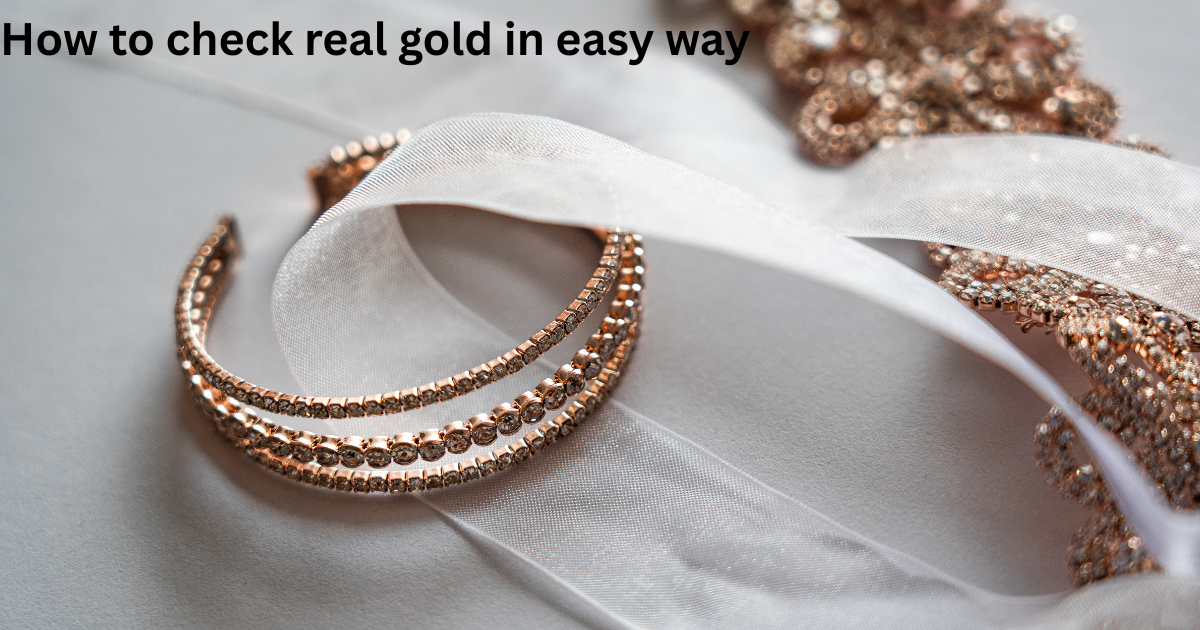
1. Look for Hallmarks or Stamps
Most real gold jewelry will have a small stamp somewhere on it. You might need a magnifying glass or just squint hard to see it. It usually says something like “24K,” “18K,” or “14K”. These numbers basically tell you how pure the gold is. 24K is pure gold, 18K is like 75% gold, and so on.
Also, sometimes you’ll see “GF” or “GP,” which stands for “gold filled” or “gold plated.” That means it’s not solid gold – just a layer on top. So yeah, that’s a red flag if you’re looking for real-deal gold.
2. The Magnet Test
This one’s super easy and kinda fun too. Real gold is not magnetic. So grab a strong magnet (not the one on your fridge if you can help it), and hold it close to the jewelry or coin. If it sticks hard, sorry to say—it’s probably fake or mixed with other metals. If nothing happens, that’s a good sign!
But heads up, just because it doesn’t stick doesn’t mean it’s definitely real. Some fakes are non-magnetic too. So don’t stop here.
3. The Float Test
Fill up a cup with water and gently drop your gold item in it. Real gold is heavy and dense—it should sink right to the bottom without hesitation. If it floats or kinda just hovers in the water, it’s likely fake or gold-plated.
Make sure to dry it properly after though, especially if it’s an antique piece.
4. The Skin Test (aka Wear It Test)
This one takes a bit of time but works surprisingly well. Wear the gold piece for a day or two. If you start to see green or black marks on your skin, that’s a sign it’s not real gold. Real gold doesn’t react with skin like that.
Also, some cheap metals cause allergies or itching, which gold shouldn’t do.
This one’s a bit risky but some people swear by it. Get a plain, unglazed ceramic plate and gently drag your gold piece across it. If it leaves a gold mark, you’re probably good. If the mark is black or gray, it’s likely fake.Just be careful—don’t scratch up your gold too hard or you might damage it.
Final Thoughts
Look, these tests aren’t 100% foolproof, but they’re a great starting point before you go spending money on professional testing. If you’re still unsure, take it to a jeweler or a pawn shop—they can usually test it on the spot with an acid kit or fancy machines.
About us and this blog
We are a digital marketing company with a focus on helping our customers achieve great results across several key areas.
Request a free quote
We offer professional SEO services that help websites increase their organic search score drastically in order to compete for the highest rankings even when it comes to highly competitive keywords.
Subscribe to our newsletter!
More from our blog
See all postsRecent Posts
- Tips to Store Jadau Jewellery Safely at Home May 23, 2025
- Is Hallmark Gold Always Real? May 23, 2025
- How to check real gold in easy way May 23, 2025


![1[1]](https://rrjewellers.in/wp-content/uploads/11-1-400x330.png)
![2[1]](https://rrjewellers.in/wp-content/uploads/21-400x330.png)